Halifax Town goalkeepers: The colourful characters between the sticks for The Shaymen
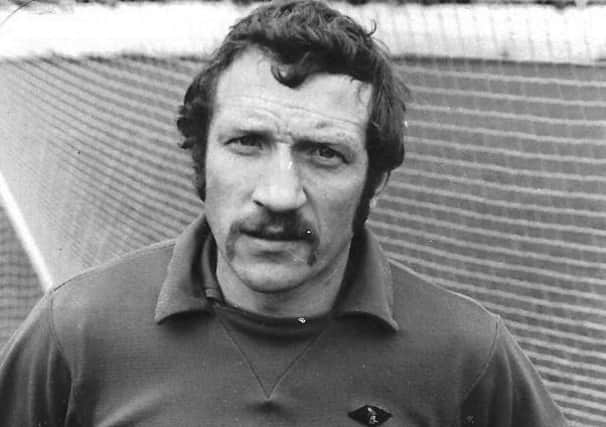

Upon the return to peacetime football, Halifax Town were blessed with two able goalkeepers in Ted Rayner, who served the club in many capacities long after he’d finished playing, and Reg Elvy, who later had an outstanding career at Blackburn.
But they were eventually succeeded by a keeper who’d joined the club as a recognised centre-back. Halifax-born Dave McCormick had been turning out for Halifax & District League side St. Malachy’s and made his league debut in the half-back line in September 1947.
Advertisement
Hide AdAdvertisement
Hide AdBut it was injury to reserve goalkeeper Rees that saw McCormick emerge as a genuine custodian in his own right.
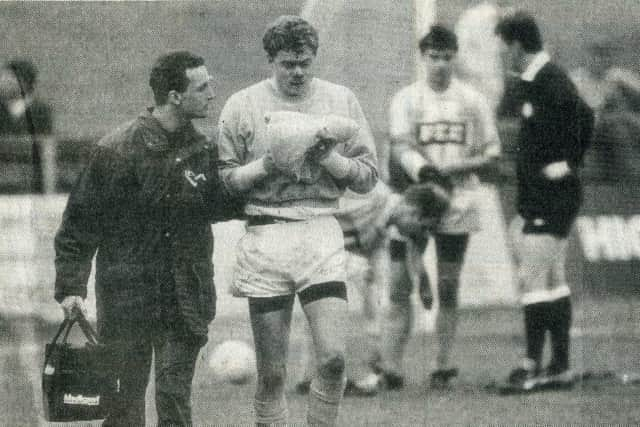

He took his place between the sticks for the reserves in a Midland League match at Goole Town on 18 November 1950, and having proved more than competent, forged a new career for himself, making the transition to the first team early in the 1951-52 season.
He vied for the position with Ted Elliot and Alf Taylor, and became first choice until the signing of the exceptional Jack Savage in March 1952.
But when Savage injured his wrist in a match at Bradford in December 1952 it opened the door to the first team once more for McCormick, just as Town were
Advertisement
Hide AdAdvertisement
Hide Adembarking on their historic FA Cup run. McCormick thus found himself heavily involved, starring in the giant-killing defeats of First Division sides Cardiff City and Stoke City, and retaining his place for the fifth round meeting with Tottenham Hotspur, which was watched by a record Shay gate of 36,885 on 14 February 1953.
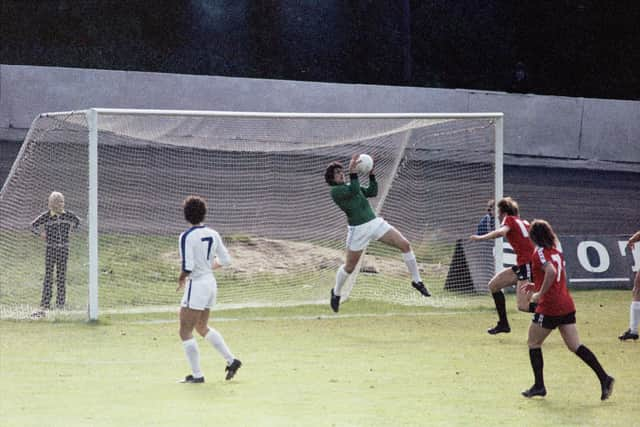

When fit, Jack Savage reclaimed the goalkeeping jersey and his immense performances saw him being snapped up in November 1953 by First Division Manchester
City, where he would understudy the legendary Bert Trautmann.
Famously, Trautmann played on with a broken neck in the 1956 FA Cup Final and was still recuperating by the time the new season started, giving Savage the chance to shine.
Advertisement
Hide AdAdvertisement
Hide AdA fit again Trautmann was restored to the side in December but Savage enjoyed another run-out the following term. All went well until he conceded six goals in a match at Preston, then worse, nine in his next game at West Brom.
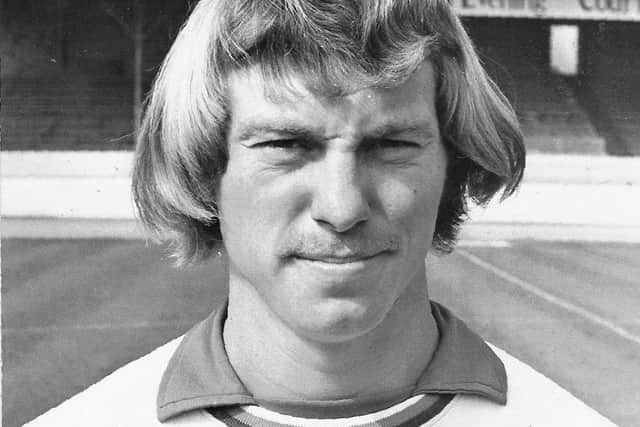

Shortly into the new year, Savage was transferred to Walsall. Mick Granger spent two season with Halifax Town following his transfer from Hull City in July 1963.
But despite making just four first team appearances, he ended up with an impressive strike record, having written himself into the club’s record books by being the only goalkeeper to score for Halifax Town in open play.
He’d come into the side because of a shoulder injury to first choice Peter Downsborough and played in Town’s 4-4 draw with Bradford on 9 November 1963, retaining his place in the side for the following week’s FA Cup tie at Workington.
Advertisement
Hide AdAdvertisement
Hide AdIt wasn’t a happy afternoon for the Shaymen, who found themselves two goals down at the interval, and then without a keeper when Granger broke a finger diving at the feet of an opponent four minutes into the second half.
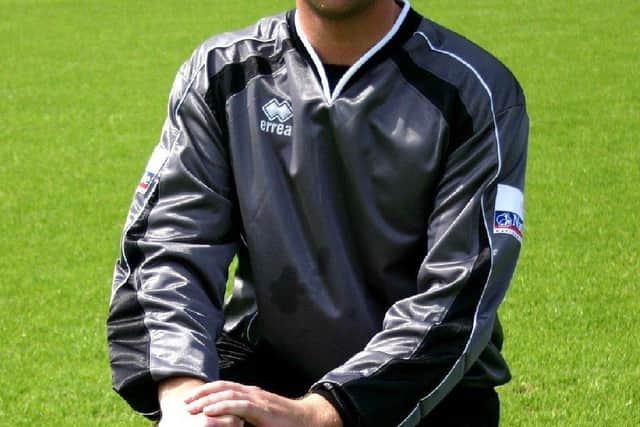

He ‘retired’ to the forward line, and whilst Dave Worthington took over between the sticks, Workington ran in two more goals.
There were five minutes remaining when Granger swung his boot to convert a crossfield pass from Willie Carlin and grab a consolation.
Alex Smith wrote himself into the history books by making more appearances than any other Halifax Town goalkeeper – 341 League appearances, plus 40 in varying cup competitions, giving him a total of 381.
Advertisement
Hide AdAdvertisement
Hide AdLike Dave McCormick before him, he had started out as an outfield player, in his case a flying winger with Weymouth, but after switching to goalkeeper was a member of the Accrington Stanley side which resigned from the Football League in March 1962.
After playing second fiddle to Eddie Hopkinson for six years at Bolton Wanderers, Smith was signed by manager Alan Ball in January 1968 and went on to star in many of Town’s most memorable matches.
Though standing only 5ft 8in, what he lacked in height he made up for in agility, and he was ever-present in 1968-69 as Town climbed out of the Fourth Division as runners-up to Doncaster Rovers.
On 31 July 1971 he memorably saved a Willie Morgan penalty as Town shocked star-studded Manchester United in the pre-season Watney Cup competition by winning 2-1, with his save being seen by millions when highlights were shown later that evening with the start of a new series of Match of the Day, commentary provided by Barry Davies.
Advertisement
Hide AdAdvertisement
Hide AdIt was the consistent form of Alex Smith which restricted reserve keeper Barry White to just 23 league appearances in five years with the club, though of these, four were actually as an outfield player during the 1974-75 season. With Town down to just twelve fit players – including both goalkeepers – for the trip to Peterborough United on 25 September 1974 manager Johnny Quinn had attempted to get the match postponed.
Cutting no ice with the Football League, he was left with little option to field White as an outfield player, operating as sweeper behind centre-half Tony Rhodes.
Three days later he helped Town to a 1-1 draw with Port Vale at The Shay, then played in the matches at Aldershot and Tranmere Rovers, both games which were lost 3-1. White never featured again and cut his ties with the club later that season.
Local league player John Hough followed in the footsteps of pre-war Ernest Ferneyhough by being on the winning side on his one and only Football League appearance when he turned out for Halifax Town on 15 September 1979, though he also had the satisfaction of keeping a clean sheet.
Advertisement
Hide AdAdvertisement
Hide AdHough, a member of the IDC West Riding County Amateur side, had been registered as a non-contract player by manager George Kirby and had actually made his first appearance for the side in a West Riding Senior Cup tie at Bradford City the previous season.
But following the transfer of regular keeper Mick Leonard to Notts County, Kirby moved to sign John Kilner, who had already been on loan at the club, from Preston North End, but when coach Mickey Bullock’s car broke down en route to FL HQ with the registration forms – the fan belt went – Kilner wasn’t cleared to play in time and Kirby had little option but to call up Hough for the visit of Hereford United.
Halifax Town were already in a nice run of form, and Hough kept his nerve as Town won 1-0 courtesy of a Bob Mountford goal.
Tim Carter had what could only be described as a torrid time whilst at The Shay. Signed by George Mulhall as Halifax Town readied themselves for their return to the Football League, he was second choice behind Lee Martin, and made his debut as a half-time substitute for groin victim Martin in the sensational 4-0 win at Scunthorpe on 3 October 1998.
Advertisement
Hide AdAdvertisement
Hide AdBut Carter had the tables turned on him when he made his first start for the club at Carlisle United on 7 November 1998.
After colliding with Jeff Thorpe, he himself failed to reappear after the break, suffering with a shoulder injury, with his place in goal taken by midfield skipper Kevin Hulme.
Later that season, on what proved to be his last Town appearance, Carter had to retire at half-time once again due to a broken thumb suffered in the goalless draw with Rochdale on 5 April 1999.
For the second time that season, Hulme donned the keeper’s gloves but had little to do, and as the Shaymen slipped out of the play-off reckoning, manager Kieran O’Regan was sacked the following day.
Advertisement
Hide AdAdvertisement
Hide AdThere have been other notable incidences when injured keepers have been replaced by non-recognised keepers.
Graham Broadbent had played for a host of local league sides, well-known as a terrific goalgetter, and when offered a professional contract by Billy Ayre, made nine appearances as a substitute before making his first start for the club in the match at Colchester United on 1 May 1989.
But his run-about up front lasted just 30 minutes; when keeper Paddy Roche was stretchered off after a collision, Broadbent found himself as his replacement in goal and performs heroics despite Town’s 3-2 defeat.
Less than two years later, Tommy Graham took the place of Jonathan Gould during one of the most astonishing matches ever witnessed at The Shay. On 2 March 1991 the Shaymen found themselves two goals down after just three minutes to Walsall, and then lost the services of Gould after 37 when he received horrendous facial injuries requiring 24 stitches having been caught by the boot of Kenny Mower.
Advertisement
Hide AdAdvertisement
Hide AdGraham went in goal and clearly enjoyed himself, refusing to be beaten while Town not only wiped out the deficit, but went on to win the game 5-2 courtesy of a Steve Norris hat-trick and a brace from Ian Juryeff.
Peter Crookes’ claim to fame is that he had the shortest career of any first team goalkeeper with Halifax Town.
A former England under 19 international, he’d been on the books at Liverpool but was brought to The Shay by Paul Bracewell and had been an unused substitute for 10 matches before finally getting his chance under new manager Alan Little, Bracewell’s successor, for the match with Shrewsbury Town on 15 December 2001 due to injury to Lee Butler.
There were six minutes of the match remaining when Crookes brought down Rory Fallon, but not only did he concede a penalty from which Ian Atkins completed the Shrews’ scoring in a 2-0 win, he was also dismissed by the referee.
Advertisement
Hide AdAdvertisement
Hide AdHe received a three-match ban and never figured with the first team again.
No keeper likes being reminded of their howlers, but Ian Dunbavin would find it hard to hide form the one he made when Halifax Town played Carlisle United on 28 March 2005.
Both sides were in the hunt for a Conference play-off place and the game looked to be heading for a goalless draw.
When Dunbavin gathered the ball routinely with Carlisle striker Glenn Murray bearing down on him, there was something of an altercation between the pair.
Advertisement
Hide AdAdvertisement
Hide AdBut when referee Bob Pollock saw that Dunbavin had hold of the ball and signalled to play on, the Town keeper misread his actions and assumed he wanted to talk to him.
He stepped out of his area still clutching the ball, only for Pollock to whistle for a free-kick for handball.
That was Dunbavin’s first error; his second was to toss the ball to Murray, who, in an instant, transferred it to Magno Vieria, who duly slotted the ball into the unguarded net for the only goal of the game.
To make matters worse for Dunbavin, the incident was captured fully on camera by Sky Sports who were covering the match live.
Comment Guidelines
National World encourages reader discussion on our stories. User feedback, insights and back-and-forth exchanges add a rich layer of context to reporting. Please review our Community Guidelines before commenting.